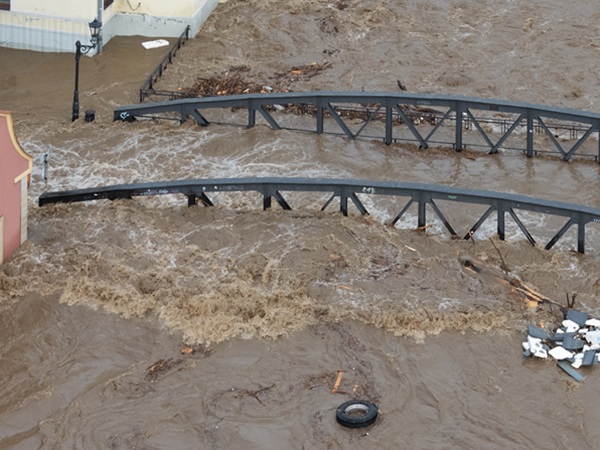Review of the Beyond growth Conference – May 15 to 17, 2023 – European Parliament
Paths to sustainable prosperity in the European Union
Dirk van der Roost, Grandparents for Climate Belgium (Flanders)
There were some 2,500 of them, the participants in the Beyond Growth Conference at the European Parliament, and add to that almost double the number of participants online. This made the conference the largest ever event on “Beyond Growth,” and even the largest ever in the European Parliament. The initiative lay with a group of 20 MEPs from 5 major political groups, with Philippe Lamberts (Ecolo) as the driving force.
The Conference also had a lot to offer. European and international policy makers, academics, representatives of non-governmental organizations and, above all, many enthusiastic young people reflected on a sustainable future for Europe. A first similar conference took place in the fall of 2018, then mainly with academics and policymakers. Corona was game-changer for a faster follow up.
The current growth-oriented system is becoming increasingly unsustainable. European countries have an ecological footprint 4 -5 times larger than what the earth can sustainably handle. By 2023, 6 out of 9 planetary environmental limits have been exceeded; in 2012 there were only 3. And chances are that by 2027 we are already experiencing years of 1.5° temperature rise, which threatens to trigger a quarter of the “tipping points” that will propel CO2 emissions, and then it’s off the hook. We are experiencing multiple crises and it is time to seek and work for profound answers.
Our production and consumption are not sustainable, and inequality in the world has increased. How long is it sustainable that the richest 1% of the world’s population emits twice as much CO2 as the poorest half? And this with the realization that this poorest half can barely meet its essential needs, if at all. Are we leaving it to a small ‘elite’ group to decide how to proceed with our world? Do we all want a ‘sustainable’ electric car of 2 tons, with 500 kg batteries, when we know that mining is already wreaking havoc in the South? Or do we opt for a different mobility, a ‘modal shift’? (see box below). The entire economic system is driven by a curious obsession with growth and by the powerful engines of profit maximization and socioeconomic inequality.
The European Green Deal already offers enormous potential for achieving a climate-neutral and biodiverse Europe, but it remains tethered to the growth mindset, so it will remain difficult to make and implement good decisions when they go against short-term interests. The lobbying machines are running at full speed.
Can we imagine a sustainable, happy and just world, and a path (or a master plan) towards it? Then we will have to rise above the current model and tinker with the distribution of power, won’t we? Do we want this? And is this possible? Well, the Conference already offered a lot of inspiration for this. Moving away from the growth obsession and from GDP growth as a measure of success is liberating. It creates the space to make choices that are good for society and for the planet, and to “grow” in well-being, in quality of life, and quality of living together.
The program featured more than 180 speakers and panellists, and the 20 organizing parliamentarians were flanked by an impressive group of organizing and supporting partners. The politicians included Ursula von der Leyen, Frans Timmermans and Roberta Metsola, the president of the European Parliament. And furthermore, just about all the celebrities of the post-growth movement were present: Kate Raworth, Tim Jackson, Georgio Kallis, Jason Hickel and many others. The speakers also included numerous leading figures from international organizations, such as the World Trade Organization, the United Nations and the OECD. But equally there was room for numerous civil society leaders.
The event generated a great deal of enthusiasm. One speaker remarked that this was the “Woodstock of degrowth”. The closing session – after 3 long and intensive days – at times resembled a political happening, with numerous young people raising signs in the air and applauding loudly for one strong statement after another. Like those of Anuna De Wever and Adelaïde Charlier, the Belgian pioneers of climate youth. Philippe Lamberts said he had never seen the Parliament hall so “vibrant.
For the first time since the first Report of the Club of Rome, the theme of limits to growth received such attention among academics, in political circles, and in a many media. Yet this is only a start, for there is simply no solution to the increasing ecological and social problems of these times without innovative paths that trigger our imaginations. This gives hope. The theme is back, and is not going away again. Whether this will lead to sufficient support, vigour and leverage is an important question. A bunch of young Europeans (and their grandparents) are already jumping into the breach!
You can relive all sessions here:
https://www.youtube.com/playlist?list=PLCsKDAfAp2L1V3CyZokKQbfCJRZ7hldh7
What should we imagine a Welfare Economy, a post-growth economy?
Here are some of the elements discussed at the Conference, in a nutshell.
In a welfare economy, we move away from the growth obsession, and opt for welfare and respect for the environment, regardless of whether this produces economic growth or not. The goal of ever increasing GDP is abandoned, and in its place are social and environmental goals for a better society. Kate Raworth’s donut model offers a nice visual representation of where we want to go.
We see energy and raw materials as scarce goods, to which all earthlings are equally entitled, and limit our ecological and material footprint. “Material matters. For rich countries, this implies a phase of degrowth. We are betting on more solidarity and less competition.
The economy is about using raw materials and energy as circularly and efficiently as possible, but also about sufficiency: moderating their use, both in production and consumption. Goods are given a long life and are reusable, repairable and recyclable as much as possible.
We are going through a transition in all sectors. Some harmful sectors are being phased out (such as the fossil industry and fast fashion), in others we are just investing heavily. More and more enterprises are being managed in a participative way, e.g. cooperatives, and we are focusing on the local economy, which makes us much more autonomous. Many (local) sustainable and meaningful jobs are created, and work is distributed, so there is no unemployment.
The community and sharing economy are encouraged, as well as care for fellow human beings and for nature. Cities and towns green up and neighbourhoods become vibrant and upgraded.
The entire food system becomes agroecological and short-chain as much as possible. Agricultural lands thus become a source of biodiversity and a buffer against climate change. The right to food, worldwide, is recognized, the power of food multinationals shrinks, deforestation stops, and – often small-scale – family agriculture flourishes, not at least in the global South.
Trade becomes fair, and products or food that exploit people and/or nature no longer enter the EU. Minimum wages, humane working conditions and freedom of association become the rule. The ravages wrought by 500 years of colonization are acknowledged, and restoration and equal world relations are worked on.
Out-of-control inequality, within and between countries, is considered a problem, the tension between high and low incomes is reduced, and equitable taxes on all incomes and assets redistribute wealth.
We enjoy universal basic services (including housing) and strong social protection, which has a stabilizing effect on society and the economy. Redistribution and universal basic services reduce inequality, and make durable goods and a basic energy package accessible to all.
To work systematically on this project, with much getting up and occasionally falling down, we need strong and visionary leadership, supported from the bottom up by citizen initiative and participation!
A utopia or an exciting concept that appeals to our imagination?
An innovative wind is blowing at many cities and local governments. Some countries and regions have already taken first steps and united in “Welfare Governments. New Zealand, Scotland, Wales, Iceland and Finland. Some other leading countries are Costa Rica, Uruguay and … Bhutan, the land of Gross National Happiness, the world’s only climate-positive country.
Always more is simply not sustainable (but this is the current trend).
Let’s take cars and mobility as an example.
Do electric cars have zero emissions? In addition to the many tons of CO2 in the normal production of cars, producing a battery requires about 4 tons of additional CO2. The battery weighs about 500 kg, which does not help the energy consumption of the car. Generating the electricity also requires a lot of CO2, especially with the current mix of grey energy. Overall, over its lifetime, an electric car would be about 50-60% more climate friendly. Given the price tag and the many standards and requirements, the EU now mainly produces large electric cars in the expensive price range.
If, in line with our growth model, we keep producing more and bigger cars, which we use more, and with which we spend more time in traffic jams, what will be left of our “50% profit”?
Are we going to keep exporting our old cars to poorer countries (which are weak in the competition for resources), where they can serve for years to come? Are we saving the climate by doing so? There are now about 1.4 billion cars circulating in the world. To have 3 billion 2-ton electric cars on the road by 2050, is that what we want?
In the geopolitical battle for the metals and raw materials needed for batteries and green energy, China has a strong dominant position. The major power blocs, including the EU, are trying to attract as many raw materials to themselves as possible. Meanwhile, mining in the South is already wreaking gigantic human and environmental havoc, partly due to the overly powerful multinationals. For batteries alone, we will need more than 300 new mines by 2035!
Europe fears not being able to produce enough electric cars by 2035, and, in order not to be swamped by Chinese models, the automobile federation (and many politicians) says “we may have to produce fossil-fuelled cars after 2035 anyway”.
The alternative?
Obviously modal shift, following the principle: Steps, Stairs, Public Transport, Private Transport. The number of bicycle variants is booming, and some cities already developed fantastic public transportation networks. So then far fewer and smaller, electric, cars, which we use selectively, and share more often. And with attention to people with reduced mobility. Will that make our lives “harder,” or just more pleasant, healthy, safe and hopeful?
And what about the resources we’re going to need anyway? That’s a tough question. At the conference, an expert advised the EU to focus as much as possible on circularity, and on balanced and correct raw material deals with countries respecting socioeconomic and environmental rights.
Opting for a “modal shift” will entail investments in public transport and bicycle infrastructure, as well as a (substantial) downsizing of the automobile industry. A profound transition, which must be well managed. Will the economy grow or shrink as a result? Is that relevant?
It is clear: whatever example we work out, a system based on perpetual growth, cut-throat competition and profit maximization will never lead to a sustainable world. When will we have leaders, politicians and parties that dare to say this out loud?

